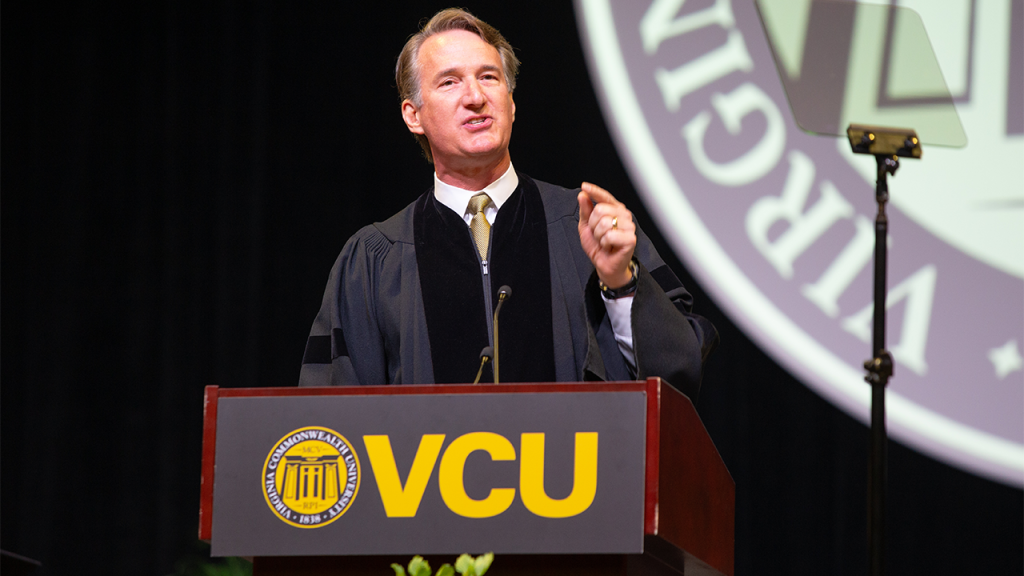Dozens of graduating students at Virginia Commonwealth University (VCU) walked out of their commencement ceremony on Saturday as Virginia Governor Glenn Youngkin began his address. The incident, captured on video, showed students leaving the Greater Richmond Convention Center during the Republican governor’s speech. Some students cheered on those who were leaving, while others stayed to hear the governor’s message. Despite the disruption, Youngkin continued with his speech, offering words of encouragement to the graduates in attendance without acknowledging those who had walked out.
Many of the students who left during Youngkin’s speech showed their support for Palestinians amid the ongoing conflict in the Gaza Strip. Others used the opportunity to signal their opposition to the governor’s education policies, with signs and chants expressing their dissent. The protesters marched around the perimeter of the convention center, chanting slogans like “No books, no peace, let the knowledge increase” and “disclose, divest, we will not stop, we will not rest.” Eventually, a group of graduates, still wearing their caps and gowns, gathered in a park and chanted, “the people united will never be defeated.”
Similar scenes of disruption occurred at other commencement ceremonies across the country on Saturday, as tensions continue to run high on college campuses. Anti-Israel protests have clashed with administrators in recent weeks, leading to heightened unrest in academic settings. The previous day had seen more chaotic events, with dozens arrested at various college campuses and police intervention at universities like the University of Pennsylvania and the Massachusetts Institute of Technology. These actions followed incidents of tear gas being deployed on demonstrators at the University of Arizona, underscoring the intensity of the ongoing protests.
The walkout at VCU and other disruptions at graduation ceremonies highlight a broader trend of student activism and dissent on college campuses. Students are increasingly using these platforms to voice their concerns and take a stand on political and social issues, often in direct opposition to authority figures and institutional policies. The clashes between protesters and administrators reflect a larger societal divide and the growing importance of activism and advocacy among young people. The events at VCU and other universities serve as a reminder of the power of student mobilization and the impact it can have on public discourse and policy debates.
Despite the disruptions and dissent at VCU and other universities, commencement ceremonies ultimately serve as a celebratory moment for graduates and their families. The walkouts and protests, while drawing attention to important issues and grievances, also underscore the diversity of opinions and perspectives within academic communities. As students move beyond graduation and into the next chapter of their lives, the experiences of activism and advocacy they have engaged in during their college years will shape their approach to societal challenges and their role as agents of change in a complex and ever-changing world. Graduation ceremonies, with all their complexities and controversies, ultimately represent the culmination of years of hard work and dedication, as well as a new beginning for graduates as they embark on their future paths.


